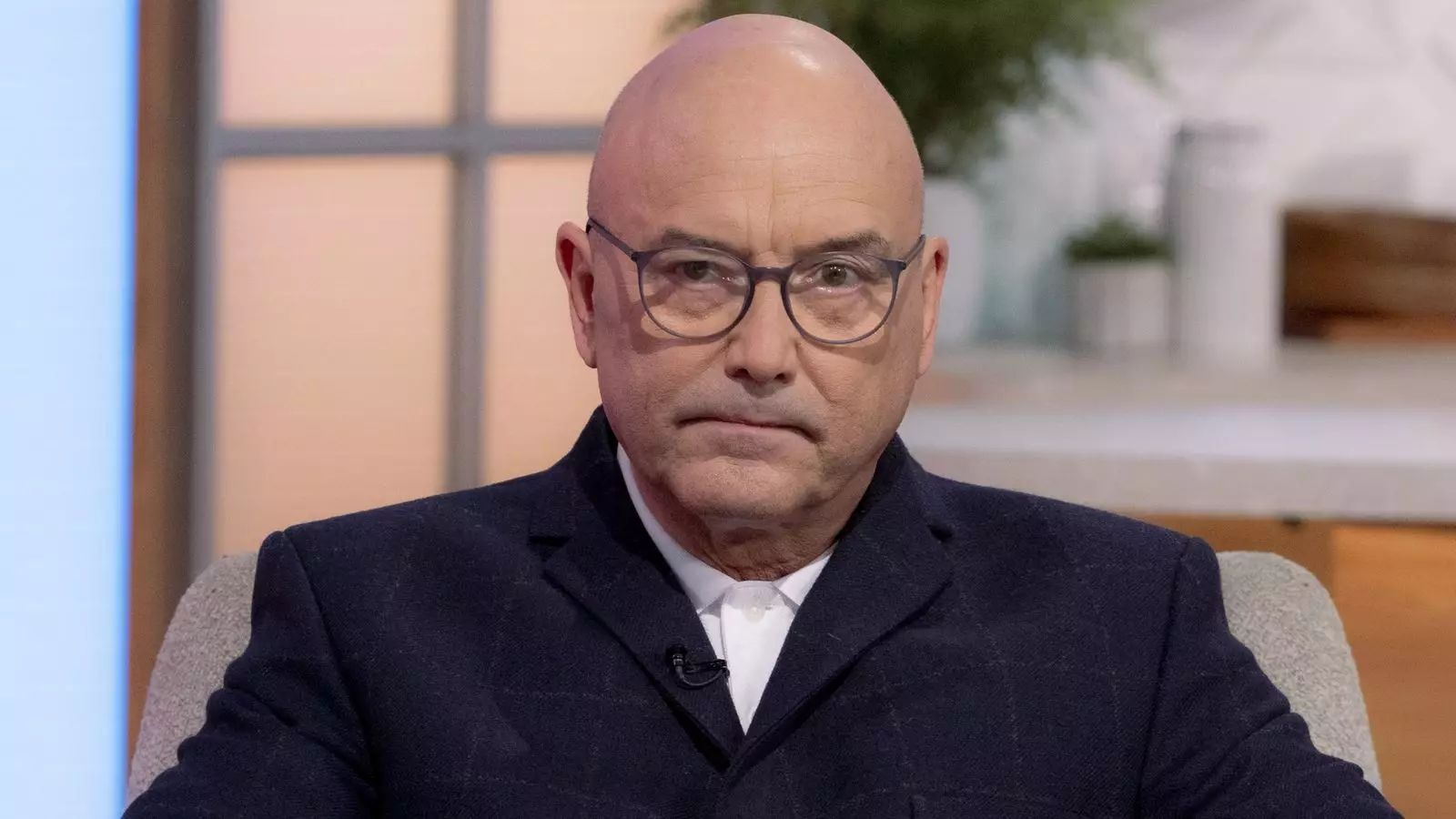Gregg Wallace, the well-known food judge and television personality, recently found himself at the center of controversy due to claims regarding his conduct during a BBC game show, “Impossible Celebrities,” which aired over five years ago. The incident, brought back into the public eye by recent reports, has created a swirling media frenzy surrounding Wallace, yet he remains steadfast in his assertion that he did not engage in any inappropriate behavior.
The fuss began with reports stemming from an investigation by the BBC regarding an alleged incident that occurred during the 2018 season of “Impossible Celebrities,” a Saturday night quiz show hosted by Rick Edwards. The program, which ran from 2017 until 2021, garnered a significant following. However, Wallace’s involvement came into scrutiny when the media suggested there had been inappropriate remarks made during his time on the show. Notably, Wallace has refuted these claims, vehemently stating, “I didn’t say anything sexual.”
In a world where the actions and words of public figures are scrutinized under a high-powered lens, allegations like these can have far-reaching consequences. Wallace’s firm denial raises questions about celebrity culture and the challenges that figures in the public domain face regarding their reputation.
The BBC, while maintaining policies of confidentiality regarding its staff, confirmed that any complaints or issues raised are dealt with efficiently. They emphasized zero tolerance for inappropriate behavior, citing robust procedures in place for addressing such concerns. However, the vagueness of the BBC’s response can leave audiences wondering about the grey areas surrounding the conclusions of internal investigations.
This incident highlights a larger issue within media institutions: how best to protect their talent while managing public perception and maintaining a commitment to ethical standards. The delicate balance of transparency versus discretion can complicate situations like Wallace’s, as demonstrated by the mixed public response to such controversies.
Wallace’s statements reveal a deeper personal commitment to his marriage, as he underscores the importance of fidelity to his wife, Anne-Marie Sterpini. The couple, who married in 2016, share a son, Sid, who has autism and is non-verbal. In a recent Instagram story, Wallace emphasized his dedication to both his family and wife, stating, “I have always been true to my wife Anna.” The emotional weight of this acknowledgment may resonate with many, emphasizing that behind the celebrity status lies a personal life that can also be impacted by public discourse.
What Wallace’s insistence on his fidelity shows is a deep-seated belief that personal relationships should be safeguarded against public speculation. This reflects a changing landscape in media, where celebrities are no longer just entertainers, but are now often expected to act as role models.
While Wallace’s career trajectory has been quite illustrious, including various BBC appearances and recent authorship projects, the controversy surrounding his past actions reveals the precarious nature of fame. Wallace has appeared in multiple cooking shows and gained a reputation as a beloved television presenter, yet a single allegation, regardless of its legitimacy, can cast shadows on his public persona.
Moreover, the recent gasps of scrutiny that the BBC has experienced with other scandals—such as welfare checks for contestants on “Strictly Come Dancing” and the removal of presenter Jermaine Jenas for sending inappropriate messages—adds to the overall tension surrounding media ethics. In this climate, the implications of a public figure’s misstep can ripple through their entire career trajectory.
Gregg Wallace’s experience underlines the ongoing challenges that celebrities face in managing their personal and public lives in an era dictated by instant communication and public opinion. The insistence on his principles of fidelity and his defense against allegations posits him as more than just a judge of culinary skills; he becomes a figure grappling with the complexities of media representation and the responsibility that comes with it.
The convergence of celebrity culture and the relentless pressures of public scrutiny forms a relentless narrative for figures like Wallace. As he strives to navigate this turbulent landscape, his ability to clear misunderstandings and uphold personal integrity will be paramount in solidifying his legacy, both on-screen and off.

Leave a Reply